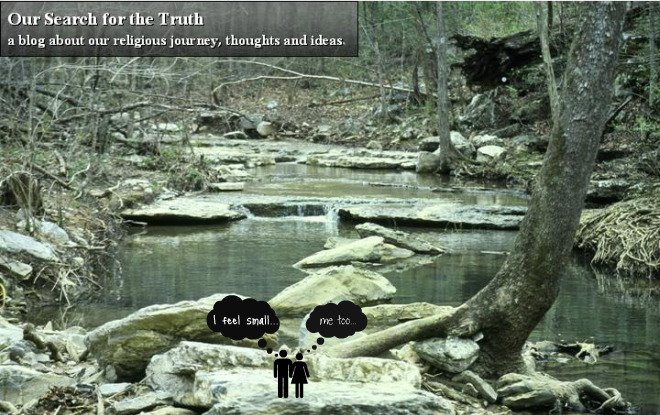A New Post!
________________________________________
Ex Nihilo Nihil Fit: From Nothing, Nothing Comes.
I think that this is the only apologetic for the existence of God which I was every presented in a sermon, Sunday school class, or Bible study. The existence of God was always assumed. I recall it specifically because the Sunday school teacher that taught about this concept wrote the phrase for us in latin. I took latin in high school (nerd that I was) so I my interest was piqued. I filed away the information, and I had a neat little unquestioned justification for the existence of God. I say unquestioned because once I had a single justification for that belief, I was comfortable moving along to other issues without stopping to make certain that this justification was good. So what happened when I did stop to study my justification?
This argument for the existence of God is flawed, weak, and, in my opinion, self refuting. It is a sort of cosmological or first cause argument for the existence of God. The argument goes like this: The universe did not exist; it does now; nothing comes from nothing, ipso facto God exists (or rather, something exists outside of, or existed before the universe--let's call that thing "God").
First, there's a flaw in the initial statement, "the universe did not exist." I am not a physicist, but I am reasonably certain that the current understanding of Big Bang cosmology makes no claim as to the state of the universe prior to the Big Bang. Thus it's equally incorrect to say with certainty "before the big bang there was nothing" as it is to say "before the big bang all the matter in the universe existed." However, being rather fond of Thermodynamics, I'm inclined to assume that the universe has always existed. Matter and energy are always conserved--counterclaiming this fact at the beginning of the universe seems to be a form of special pleading. This argument also creates a problem with terminology. If the universe is defined to be inclusive of everything, then it must include God (if he is something, anyway), thus if there was a time when the universe did not exist, then God also must not existed at that time.
Next, the argument is weak. If you cede that the form of the argument is acceptable, you're left with a very ill defined God. God is whatever was before the universe, and whatever cause the universe to exist. I don't think that there is a good argument to connect this being to the personage described in the Bible (or any other holy book, for that matter). It's an argument for a deistic god--not a personal loving God.
Thirdly, I think that the argument is self refuting. Simply asking "where did God come from?" sends you into an infinite regression of beings and creators of beings, who must themselves have been created.
________________________________________
Thanks for reading--and please comment!
_Scott


